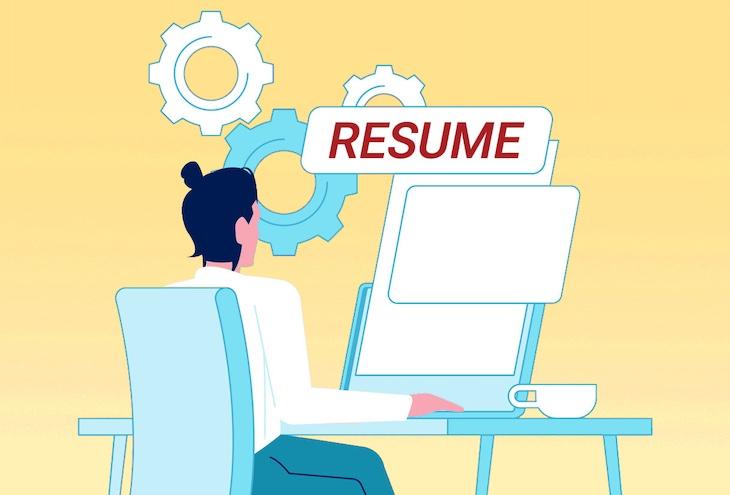You might think that once you’ve landed a job you’re all set and no longer need to worry about updating your resume. While that may have been true years ago, in today’s professional environment, it’s important to ensure you have a current version of your resume at the ready. Here are a few reasons why you should always keep your resume up to date.
Keep Track of Accomplishments
Keeping a current resume makes it easy to keep track your accomplishments. Whether it’s a promotion, new certification, or work in a new area, continually adding information to your resume means that it's reflective of your experience. It will also help ensure that you don’t forget to add something important at a later date.
Quickly Apply to Positions
You never know when an exciting opportunity might come along. Having an updated resume means that when a prospect does present itself, you’ll be ready to act on it. You will be able to apply to opportunities quickly and efficiently and reduce the stress that comes with scrambling to put a resume together — and potentially making mistakes in the rush.
Others Are Looking for You
While you may not necessarily be seeking a new position, it doesn’t mean others aren’t looking for you. In today’s market, recruiters are constantly on the hunt for potential applicants. Ensuring that your resume is up to date allows recruiters to quickly and easily determine if you have the skills and experience they’re looking for. If so, you may end up with an exploratory call, a new contact, or even an offer.
You’re Ready for the Unexpected
In the event that the unexpected happens and you are laid off, you won’t waste precious time before beginning your job search with a resume at the ready. You can quickly apply to new positions, knowing that you have the correct information from all of your previous roles. Being laid off or terminated can result in the added stress of not being able to access the job descriptions and outlined responsibilities from your previous roles. Having an updated resume eliminates the stress of trying to gather such information before leaving the office.
For those who haven’t updated their resume in some time, doing so may seem like a daunting task. But if you invest the time for a thorough refresh now, the time you spend on future updates will become minimal. And just think, you’ll always be ready to act on new opportunities; you’ll have an accurate, current record of your accomplishments; and you’ll have a detailed history of your work.
ON TOPIC
Just like fashion, trends in resumes come and go. Years ago, the big resume trend was to include an objective on your resume. Other trends included keeping your resume to only one page and including references. All of these are sure signs of an older resume. Here are six trends to consider for a modern resume that highlights what recruiters want to see.
Soft Skills
Soft skills describe how you work, how you relate to others, and who you are as a professional. Examples of soft skills include problem-solving, conflict resolution, customer service, and good communication. Hiring managers note that soft skills are a major factor when reviewing candidates — and would consider hiring someone with strong soft skills even if they didn’t have other desired skills.
Hard Skills
It’s important that recruiters can quickly assess what hard skills — the capabilities you learn through training or hands-on experience like data analysis, coding, project management, and foreign language fluency — you’ll bring to the organization. When designing your resume, be sure that these skills are easy to find.
Proven Results
In addition to skills, include your major achievements on your resume. These serve as examples of how you put those skills to work. Proven results — quantified where possible — show a hiring manager what you will bring to the role and how you could contribute to their team, so don’t be afraid to brag a little.
Keywords
Optimize your resume by using relevant keywords. You can determine what keywords to include by examining what’s listed as “required” or what words are repeated in the job listing. Once you know what keywords to use, put them to work describing your experience. Keywords will also increase the likelihood that your resume will move along in the applicant tracking systems (ATS) that some companies use to automatically identify qualified candidates. That said, be careful not to include a list of all keywords in an effort win over the ATS. If a recruiter sees this, they will likely dismiss your resume.
Format
The majority of companies rely on ATS for their first-round resume review. That means, a simple, clean format is the best way for a resume to make it past the ATS scan. Design elements, including images and borders, confuse the ATS and could cause your resume to be rejected. Likewise, use standard fonts such as Times New Roman, Arial, or Helvetica and keep your section headers simple — Work Experience, Skills, Education — to ensure the ATS can read it.
Social Media
Every resume should include links to your social media profile, specifically LinkedIn, the go-to site for recruiters to screen candidates. Be sure your profile is updated and accurate, and recognize that hiring managers will likely review it before your interview. You may also include links to an online portfolio, a personal website, or articles you’ve written to help showcase your work and professional achievements. There’s no need to include personal social media accounts on your resume, but remember that potential employers may take a look anyway. Adjust your social media settings to increase privacy, delete any potentially embarrassing pictures from your social media feed, and post responsibly.














